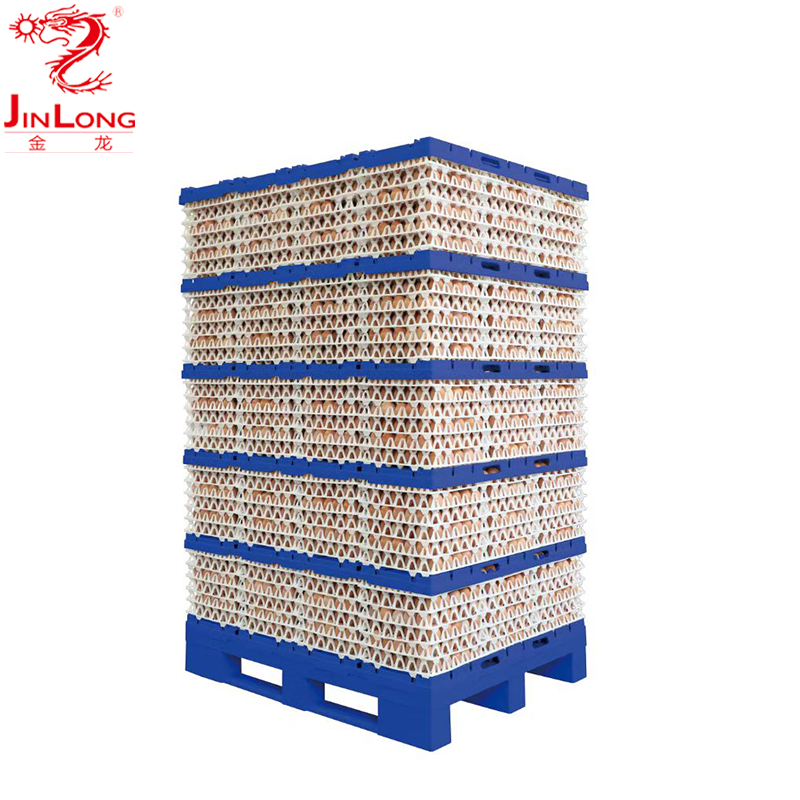When it comes to transporting eggs, it is important to take certain precautions in order to ensure the safety and quality of the eggs. Eggs are a highly delicate and perishable food item, and mishandling during transportation can lead to cracked shells, contamination, and ultimately, a loss of product. To address these issues, many companies have turned to innovative solutions such as the use of specialized egg transport pallets.
Egg transport pallets are designed specifically for the safe and efficient transportation of eggs. These pallets are constructed with materials that provide cushioning and support for the eggs, while also allowing for proper ventilation. This helps to minimize the risk of breakage and spoilage during transit, ultimately preserving the quality of the eggs.
One key advantage of using egg transport pallets is that they are designed to accommodate large quantities of eggs in a single unit. This means that fewer trips are required to transport the same amount of product, reducing overall transportation costs and minimizing the risk of damage to the eggs.
In addition to using specialized pallets, there are several other precautions that should be taken when transporting eggs. One of the most important considerations is the temperature at which the eggs are transported. Eggs are highly sensitive to temperature fluctuations, and exposure to extreme heat or cold can have a detrimental impact on their quality. Therefore, it is essential to ensure that the temperature inside the transportation vehicle remains within a safe range.
Another important consideration is the handling of the eggs during loading and unloading. Eggs should be carefully placed onto the pallets, and efforts should be made to minimize any jostling or shaking that could lead to breakage. Additionally, it is important to secure the eggs in place during transit to prevent them from shifting and potentially cracking against each other.
Proper labeling and documentation are also crucial when transporting eggs. It is essential to clearly mark the packaging with information regarding the contents, as well as any special handling instructions. In the event of an issue during transportation, having this information readily available can help to expedite the resolution process and mitigate potential losses.
Furthermore, it is important to work with reputable transportation providers who have experience in handling delicate food items such as eggs. This can help to ensure that the eggs are handled with care throughout the entire transportation process, from loading to unloading.
Transporting eggs requires careful attention to detail in order to protect the quality and safety of the product. Using specialized egg transport pallets is one effective solution for minimizing the risk of damage during transit. In addition to using these pallets, it is important to maintain proper temperature control, handle the eggs with care, and work with experienced transportation providers. By taking these precautions, companies can ensure that their eggs reach their destination in optimal condition, ultimately preserving their value and quality.
Post time: Mar-04-2024

